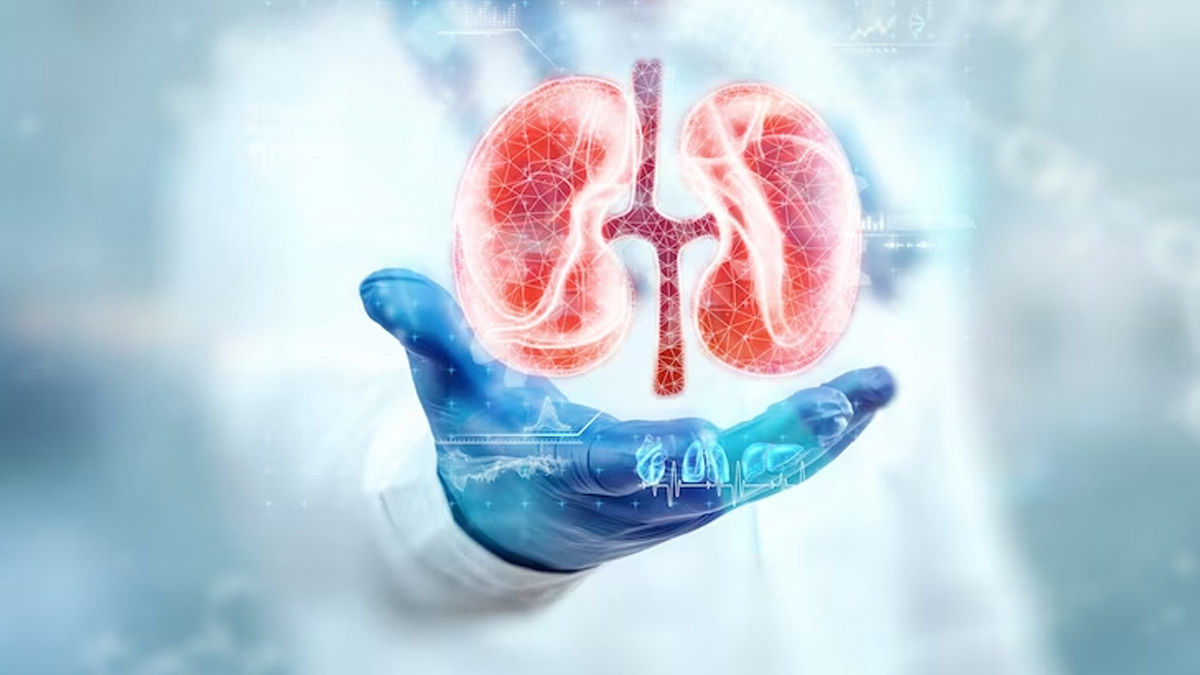
Understanding the Stages of Chronic Kidney Disease and What to Expect
Delve into the stages of Chronic Kidney Disease, discover what each phase entails, and prepare for the journey ahead with proactive strategies.


Delve into the stages of Chronic Kidney Disease, discover what each phase entails, and prepare for the journey ahead with proactive strategies.

As you navigate the complexities of Chronic Kidney Disease (CKD), being aware of the stages and what lies ahead is essential. From the silent beginnings of kidney damage to the potential need for more intensive treatments as the disease progresses, understanding what each stage entails can empower you to take control of your health journey. Chronic Health Conditions like CKD require careful management and proactive steps to ensure the best outcomes. Stay tuned to uncover the nuances of each stage and the proactive steps you can take to manage CKD effectively.

Chronic Kidney Disease, commonly known as CKD, affects millions of individuals worldwide and is characterized by the gradual loss of kidney function over time. The kidneys play a crucial role in filtering waste and excess fluids from the blood, regulating blood pressure, and producing hormones essential for red blood cell production. When kidney function declines, waste builds up in the body, leading to various complications.
In the early stages of CKD, individuals may not experience any symptoms, making it challenging to detect the disease. However, as CKD progresses, symptoms such as fatigue, swelling in the extremities, changes in urination patterns, and difficulty concentrating may become apparent.
It's crucial to diagnose CKD early through regular screenings, as early intervention can help slow the progression of the disease and prevent further damage to the kidneys.
Managing CKD involves lifestyle modifications, medication, and monitoring kidney function regularly. By working closely with healthcare providers and adopting healthy habits, individuals with CKD can improve their quality of life and reduce the risk of complications associated with advanced stages of the disease.
Chronic Health Conditions QLD
2 / 328 Newman Rd
Geebung, Queensland
Email: admin@geebungclinic.com.au
Phone: 07 3265 6922
Website: https://chronichealthconditions.com.au/
In Stage 1 of Chronic Kidney Disease, the initial sign is kidney damage despite maintaining normal kidney function. This stage is often asymptomatic, meaning you may not experience any noticeable symptoms. The key indicator at this point is the presence of kidney damage, which can be detected through various tests like urine or blood tests.
Common causes of kidney damage in Stage 1 include high blood pressure, diabetes, or certain medications. It's crucial to address any underlying conditions contributing to the kidney damage to prevent progression to more severe stages of chronic kidney disease.
Monitoring and lifestyle modifications play a significant role in managing Stage 1. Regular check-ups with your healthcare provider, maintaining a healthy diet low in salt and processed foods, staying hydrated, and avoiding smoking are essential steps to preserve kidney function.
Understanding the early stages of chronic kidney disease empowers you to take control of your health and potentially slow down the progression of the condition.
Moving on from the initial stage of kidney damage with normal function, Stage 2 of Chronic Kidney Disease involves the presence of kidney damage accompanied by a mild decrease in kidney function. At this stage, you may still not experience any symptoms, as your kidneys can compensate for the reduced function. However, medical tests can detect signs of kidney damage, such as protein or blood in the urine, and a slightly decreased glomerular filtration rate (GFR) ranging from 60 to 89 mL/min.
It's crucial to monitor your kidney health regularly in Stage 2, as early intervention can help slow down the progression of the disease. Lifestyle modifications like maintaining a healthy diet, controlling blood pressure, staying hydrated, and avoiding nephrotoxic substances are essential.
Your healthcare provider will work with you to create a personalized treatment plan to manage your condition effectively. By staying proactive and informed, you can take control of your kidney health in Stage 2 of Chronic Kidney Disease.

With a moderate decrease in kidney function, Stage 3 of Chronic Kidney Disease marks a significant progression from the earlier stages. At this stage, your kidneys are functioning at a reduced rate, filtering waste and excess fluids less effectively. You may start experiencing symptoms like swelling in the hands and feet, high blood pressure, fatigue, and changes in urination patterns.
It's crucial to monitor your condition closely at this point, as the progression of kidney disease can vary from person to person. Your healthcare provider will work with you to manage underlying conditions that could be contributing to the decline in kidney function, such as diabetes or hypertension.
Lifestyle changes, including a balanced diet, regular exercise, and avoiding tobacco and excessive alcohol consumption, become even more critical in slowing down the progression of the disease. Regular check-ups and monitoring of your kidney function through blood tests and urine tests are essential to track the status of your kidneys and adjust your treatment plan accordingly.
At Stage 4 of Chronic Kidney Disease, individuals experience a severe decrease in kidney function, requiring heightened attention and management strategies. This stage is characterized by a significant drop in the glomerular filtration rate (GFR) to 15-30 ml/min.
As kidney function continues to decline, waste products and fluids can build up in the body, leading to symptoms like fatigue, swelling, nausea, and difficulty concentrating. Additionally, individuals at Stage 4 are at a higher risk of developing complications such as high blood pressure, anemia, bone disease, and cardiovascular issues.
Management of Stage 4 CKD involves close monitoring of kidney function, dietary modifications to control electrolyte and fluid imbalances, medications to manage symptoms and complications, and potential preparation for renal replacement therapy like dialysis or kidney transplant.
It's crucial for individuals at this stage to work closely with their healthcare team to slow disease progression, alleviate symptoms, and maintain their overall health and well-being.

Exercise can worsen chronic health conditions if done incorrectly or excessively. Listen to your body, follow a tailored exercise plan from a healthcare provider, and make gradual progress. Consult your healthcare team for personalized guidance.
To stay motivated to exercise regularly, set realistic goals, create a schedule, vary your routine, find activities you enjoy, track your progress, reward yourself, enlist a workout buddy for accountability, and remember the benefits.
Yes, it's safe to exercise with multiple chronic conditions. Consult your healthcare provider for personalized guidance. Start slowly, listen to your body, and choose activities that suit your abilities. Regular exercise can benefit your overall health.
For specific chronic conditions, tailored exercises like aerobic, strength training, flexibility, or balance exercises can be beneficial. Consult your healthcare provider or a qualified exercise professional to determine the best exercise regimen for your condition.
When exercising with chronic health conditions, it's crucial to consult your healthcare provider for tailored guidelines. Start slowly, listen to your body, and monitor any symptoms. Stay hydrated, warm up, and cool down properly to ensure safe and effective workouts.